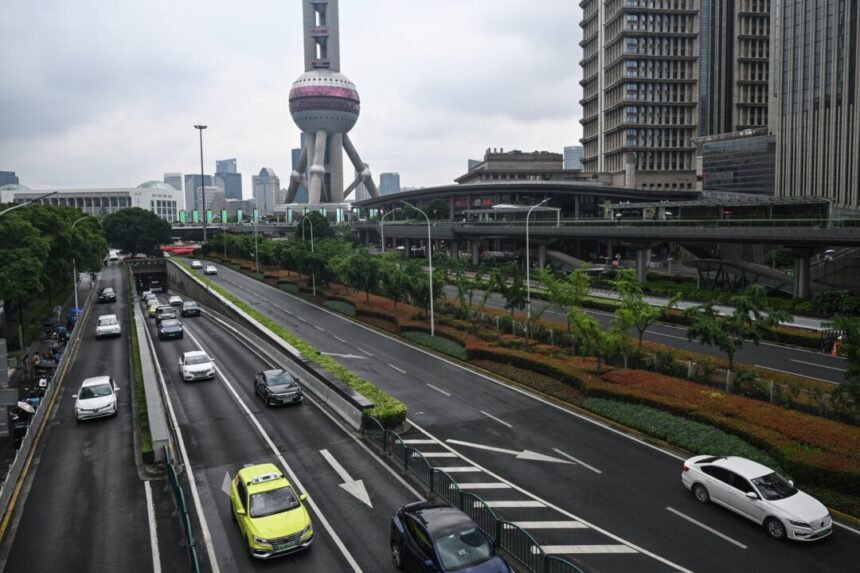Recent actions taken by Beijing to stimulate China’s economy have been significant, but further measures may be necessary.
Analysis
In September, Beijing made a bold move, acknowledging that the previous stimulus package had not been effective in aiding the struggling economy. The new monetary and fiscal stimulus measures are more extensive than ever before. While these steps may help achieve the 5 percent real growth target for 2024, they are unlikely to fully restore China’s economic momentum.
On the fiscal front, Beijing plans to issue an additional 2 trillion yuan ($284 billion) in sovereign debt. Half of this amount will support heavily indebted local governments, while the other half will fund various programs for individuals and families.
One initiative includes providing “living allowances” to the poor in celebration of the 75th anniversary of communist rule on Oct. 1. While this may boost immediate economic activity, its long-term impact is limited. Beijing will also introduce a monthly allowance of 800 yuan ($114) per child in families with two or more children, aimed at stimulating economic activity and potentially increasing birth rates to counter demographic challenges.
Separately, Shanghai will offer 500 million yuan ($71 million) in vouchers for dining and entertainment, which may have a minimal impact given its size relative to the city’s GDP. Additionally, Beijing plans to recapitalize six major banks with 1 trillion yuan ($142 billion) to address the fallout from the property crisis.
On the monetary side, the People’s Bank of China (PBOC) will implement several measures outlined by Governor Pan Gongsheng. These include reducing lending facility rates and reserve requirements to encourage lending and economic activity. The PBOC will also provide funding for investment funds, brokers, and insurers to support the stock market and finance share buybacks.
Despite these extensive measures, the key to economic recovery lies in restoring consumer confidence and supporting private businesses, which play a significant role in the economy and job creation. Chinese consumers are hesitant to spend due to factors like the property crisis and stagnant real estate values. Private businesses have also scaled back investment and hiring, influenced by past government criticisms and economic uncertainties.
It is crucial for Beijing to address these challenges to stimulate sustainable economic growth. Without restoring confidence in consumers and private businesses, achieving the 5 percent growth target for 2024 may be challenging. More stimulus may be on the horizon, but genuine economic activity and confidence-building efforts are essential for long-term recovery.
Maybe these upcoming steps could help solve the confidence issue. If we don’t address this issue, the economy will remain in a weakened state.
Opinions expressed in this article are solely those of the author and do not necessarily reflect the views of The Epoch Times.






